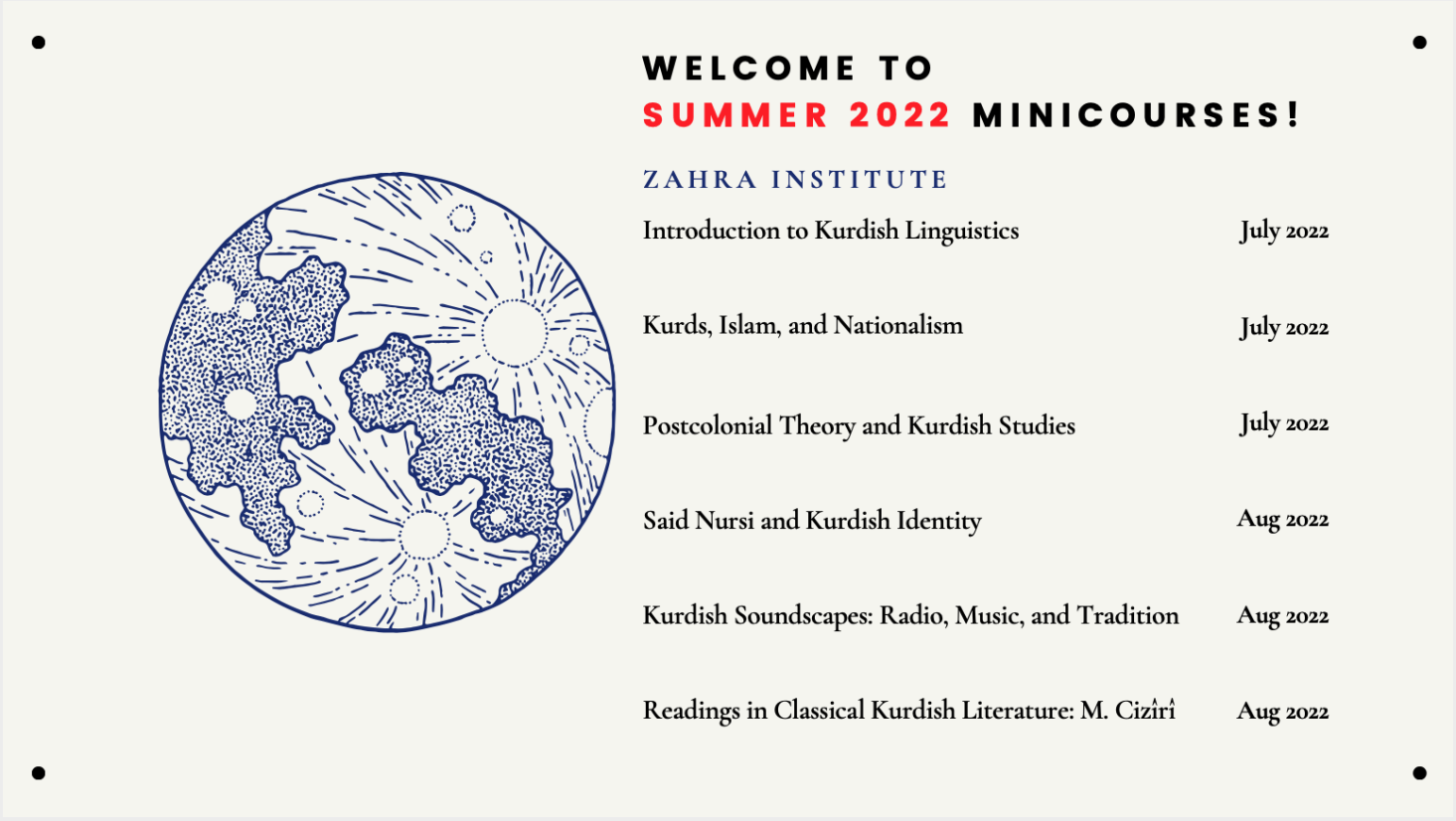Each of the following minicourses runs for four weeks. The class will meet once a week online for three hours. The courses are designed for a broad spectrum of learners including upper level undergraduate and graduate level students as well as independent scholars.
[Meeting dates and time for each course to be specified]

Follow Us!